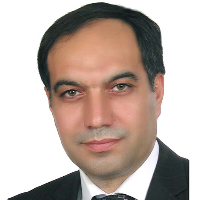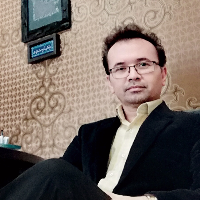Designing a Model for Maintaining Elite Gene with an Emphasis on Graduates of Higher Education and Ministry of Health
Elite migration can be defined as a kind of phenomenon or social issue that has both positive and negative effects and, under specific conditions, it results in desirable advancement of the developing countries. Considering negative effects, elite migration causes the country to face problems in terms of science, research, economics, politics and sociology, and the development cycle will be interrupted. On the other hand, taking the desirable results into consideration, the short-term migration of elites to developed countries make them scientifically richer and once they return to the country, they can effectively contribute to the development of the economic cycle and motivate the human resources inside their country. Therefore, the overall purpose of this research is to design an elite gene retention model emphasizing graduates of higher education and Ministry of Health.
In the present study, in order to design and examine the developmental model, mixed sequential exploratory method has been used. Regarding the qualitative section, the primary framework of qualitative pattern of retaining the elite gene was measured using scientific texts and interviewing experts through alignment method. Qualitative research method is a case study which was designed by using thematic analysis and the network of contents including three levels of basic, organizing, and inclusive themes. In the next step, by collecting quantitative data, the model was evaluated by the descriptive-survey method. For the starters, 35 intellectually-qualified professors (associate professors and above, having the experience of living and studying in foreign countries for more than 3 years, graduated from one of the top 500 universities in the world, and teaching at the top universities in Iran) were selected as the potential participants using judicial-purposeful sampling. Subsequently, in the quantitative section, 163 elite professors possessing highly special conditions were picked using Morgan table. The research tool in the qualitative section was semi-structured interviews of the library study and in the quantitative section, a questionnaire was used. In the quantitative section, a questionnaire consisting of 97 questions, which were obtained from the results of the qualitative section, was designed and distributed among the elite professors. It was examined using the Confirmatory Factor Analysis method and Smart PLS2 software.
The data obtained from content analysis method and the formation of themes network suggest that the framework of the qualitative model of elite gene retention includes five aspects of attraction factors, repulsion factors, individual factors, intervention factors, and retention factors. Regarding attraction, factors such as social welfare, job security, income, job independence, proper job opportunities and economic prosperity in the West were recognized as the most important factors. The prominent factors on repulsion were extreme administrative bureaucracy, severe inflation, improper lifestyle, injustice, and inefficient working culture. Factors on individual aspect include human security, dissatisfaction with the social system, and individual stagnation. Distance (physical and mental), unpleasant news, visa and accommodation facilities are of intervening factors. Finally, retention aspects were recognized as organizational downsizing, revision in payments, implementation of meritocracy and dissatisfaction with Western culture. Using the Fuzzy Delphi method, the experts reached agreement in three stages. During three stages of opinion poll since 2018, five questions regarding spreading smuggling, lack of research, lack of progress in manufacturing and industry, providing commuting opportunities, and reducing human resources were selected from the list. Moreover, out of 29 factors, 24 were finally approved and five factors on freedom constraints, job mobility, lack of proper nutrition, dissatisfaction with the West, and localizing the educational system were taken off the model. Conducting Confirmatory Factor Analysis method, R2 values indicate that a high portion of variance in elite gene retention factors are under the influence of attraction, repulsion, individual, intervention, and retention factors. The values obtained for each of the factors are as follows: attraction factors (0.92), repulsion factors (0.827), individual factors (0.748), intervention factors (0.753), and retention factors (0.899). In the present study, in addition to the aforementioned factors of attraction, repulsion, individuals, and intervention, we tried to identify the important factors in retaining elite in the country as well. Therefore, using experts' opinions and field studies, retention factors were picked. In previous studies, suggestions have been proposed to prevent the elite migration, but in none of these studies, retention factors have been mentioned as an important item along with the rest. Meritocracy, organizational downsizing, scientific and research facilities, credit management and job security were among the most important factors in retaining elite.
- حق عضویت دریافتی صرف حمایت از نشریات عضو و نگهداری، تکمیل و توسعه مگیران میشود.
- پرداخت حق اشتراک و دانلود مقالات اجازه بازنشر آن در سایر رسانههای چاپی و دیجیتال را به کاربر نمیدهد.



